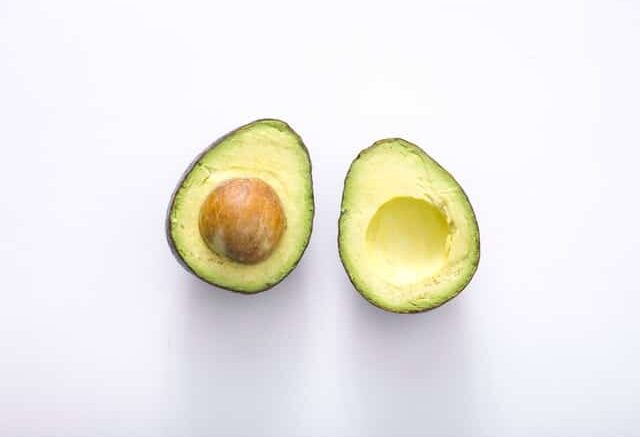Is avocado good for diabetics? Introduction
Type 2 diabetes affects 30.3 million Americans, according to a 2015 CDC estimate. That’s nearly a tenth of the population.
Lifestyle changes, such as diet and exercise, are essential for managing type 2 diabetes and reducing blood sugar rises.
The foods you consume play an important role in managing type 2 diabetes symptoms. In this post, we’ll look at the health benefits of avocado for diabetes as well as its general benefits.
Avocados are the subject of dispute as to whether diabetics should eat them, although they play an important role in diabetes control. It’s especially beneficial for diabetics, as even healthy people are inclined to eat avocados.
Avocado is a fruit with a high nutritional content that is used to give dishes a richer flavor and texture. Guacamole is the primary ingredient. It’s also high in vitamins and minerals, making it a nutritious option for individuals of all ages.
People with diabetes should eat meals that help them regulate their blood glucose levels, reduce their cholesterol, and drop their blood pressure.
Avocados have no cholesterol or salt, are low in saturated fat, and can help postpone or prevent diabetes, according to recent research.
Avocados can help regulate blood sugar levels and promote weight loss when consumed during breakfast. This fruit is strong in vitamins, heart-healthy fats, and minerals and has a creamy green color.
When you have diabetes, it’s even more vital to keep a healthy weight. People who ate avocados had a lower body mass index (BMI), less fat around the stomach, and weighed less, according to one study.
Because it is high in fiber but low in carbohydrates, it may help you lose weight by keeping you fuller for longer and causing you to consume fewer calories.
Avocado and Type 2 Diabetes
Avocado has been proven to help manage Type 2 diabetes by increasing the body’s sensitivity to insulin and lowering blood glucose levels, according to research.
- Insulin is necessary for humans to maintain blood sugar regulation. Insulin sensitivity is the degree to which your body’s cells respond to insulin. By enhancing it, you can reduce insulin resistance and improve blood sugar management.
This can occur in throw the following ways
- Avocados are high in monounsaturated fats, which are among the healthiest fats. Furthermore, foods containing such lipids in combination with low-quality carbohydrates may enhance insulin sensitivity.
- Avocados are high in fiber, making them a slow-digesting meal that releases sugar gradually in the circulation, preventing a sudden rise in blood glucose.
- Avocado is also low in carbs, which are responsible for blood sugar spikes.
- Avocado contains healthy fats that make you feel fuller for extended periods. As a result, when you eat less, you burn fewer calories. Weight loss can improve insulin sensitivity.
- Researchers discovered that AvoN, a lipid molecule found only in avocados, prevents insulin resistance in the skeletal muscle and pancreas by preventing missing oxidation.
Other Health Benefits of Avocado
Avocados are a healthful food linked to several health benefits, including:
- Avocados are high in potassium, which can counteract the negative effects of salt on blood pressure, resulting in lower readings.
- Avocado is a great fruit for a healthy heart because of its beneficial effects on blood pressure and cholesterol.
- Fiber helps digestion and avoids digestive problems such as constipation, which is prevalent among diabetics.
- Avocados are also advised for diabetics to lower LDL cholesterol and raise HDL cholesterol.
- Decrease the risk of various heart conditions such as heart disease and cancer.
- Avocado is also high in antioxidants, which can help protect your eyes from diseases like cataracts and macular degeneration.
What should be the ideal dosage of Avocado in a day?
You may make your dinner healthy by including fiber and protein-rich items into your diet, along with a little quantity of avocado. When including Avocado into your diet, keep in mind the calorie and carb counts. The FDA advises eating 1/5th of a medium avocado, which has around fifty calories.
What is the Best Way to Include Avocado Into Your Diet?
- Avocado can be used in place of butter or cheese on toast. Avocado may also be used as a milk alternative in smoothies to boost fiber, phytochemicals, and minerals.
- In this manner, you can cut down on saturated fat and calories while still obtaining the beneficial fats, fiber, and other nutrients. It will make you feel fuller, prevent overeating, and keep your blood sugar in control.
Conclusion
Avocado is a tasty food that is high in healthy fats, fiber, vitamins, and other vital elements. As a result of the low carb content, high good fats, and fiber content, diabetics may eat it as part of a balanced diet without worrying about their blood sugar levels rising.
They can also help you lose weight if consumed in moderation. Additionally, when consumed in moderation, they can lower illness risk, and improve overall health.
See Also
References
http://myfoodwiki.com/can-diabetic-eat-avocado/
https://faydayarar.com/sugar-patients-avocado-can-eat-avocado-diabetes-benefits/
http://www.kalbe.com.kh/en/health/benefit-of-avocado-for-diabetes
